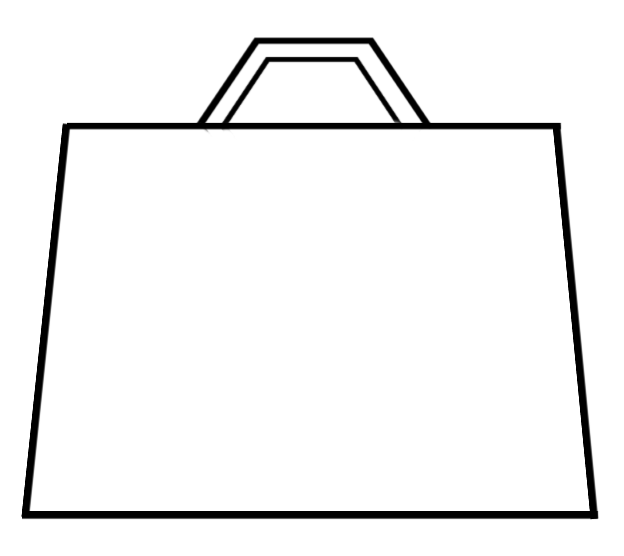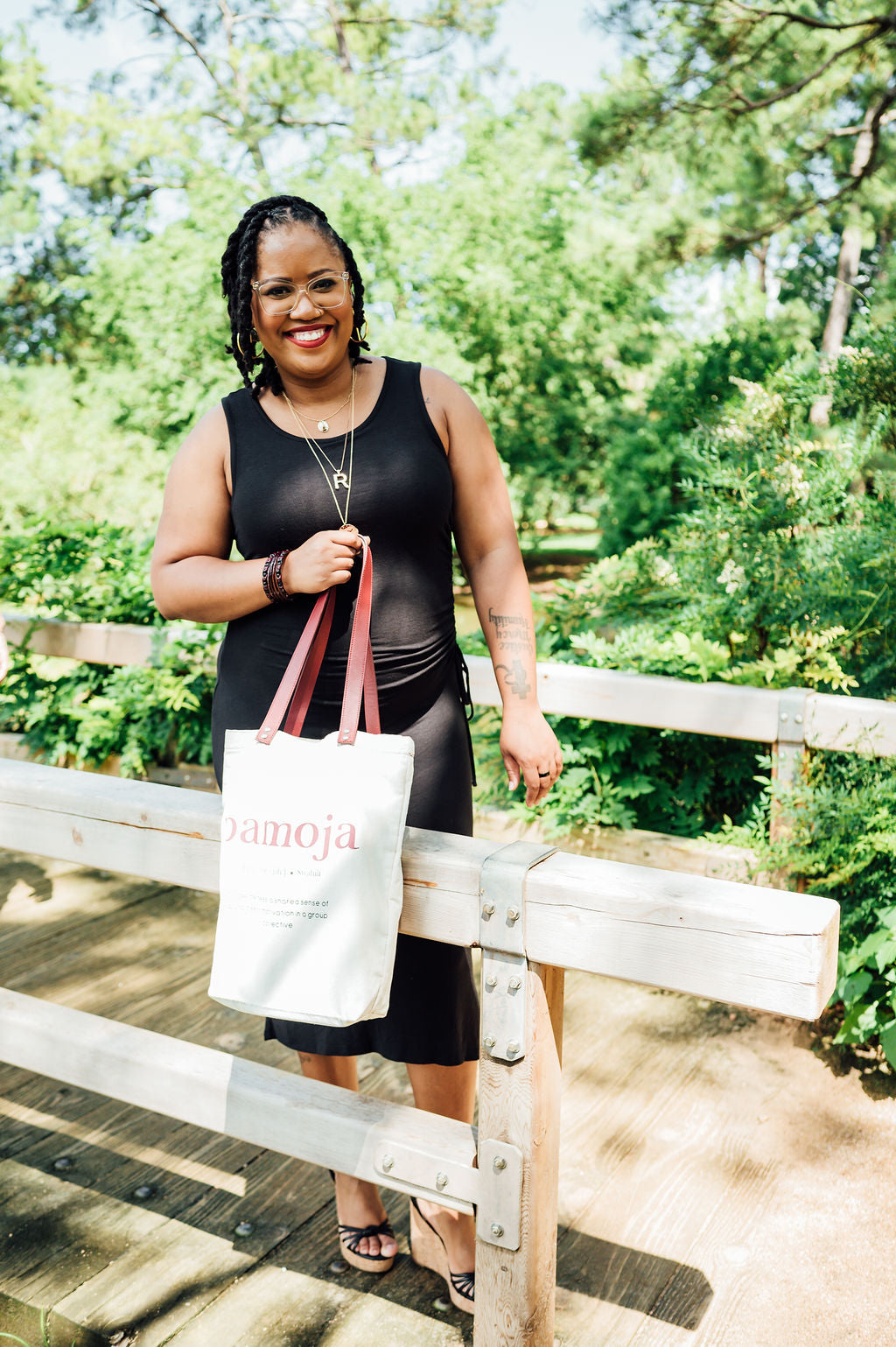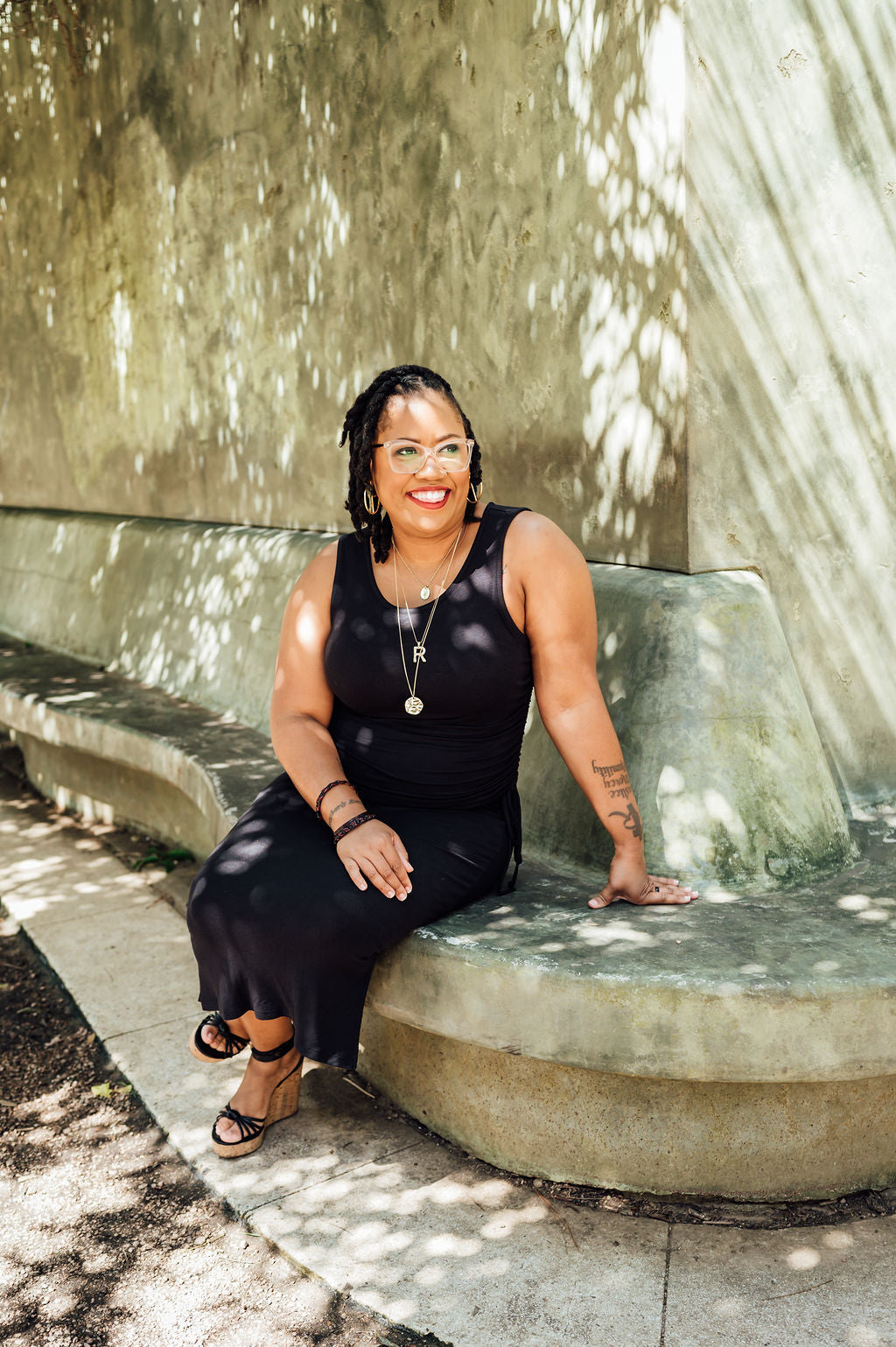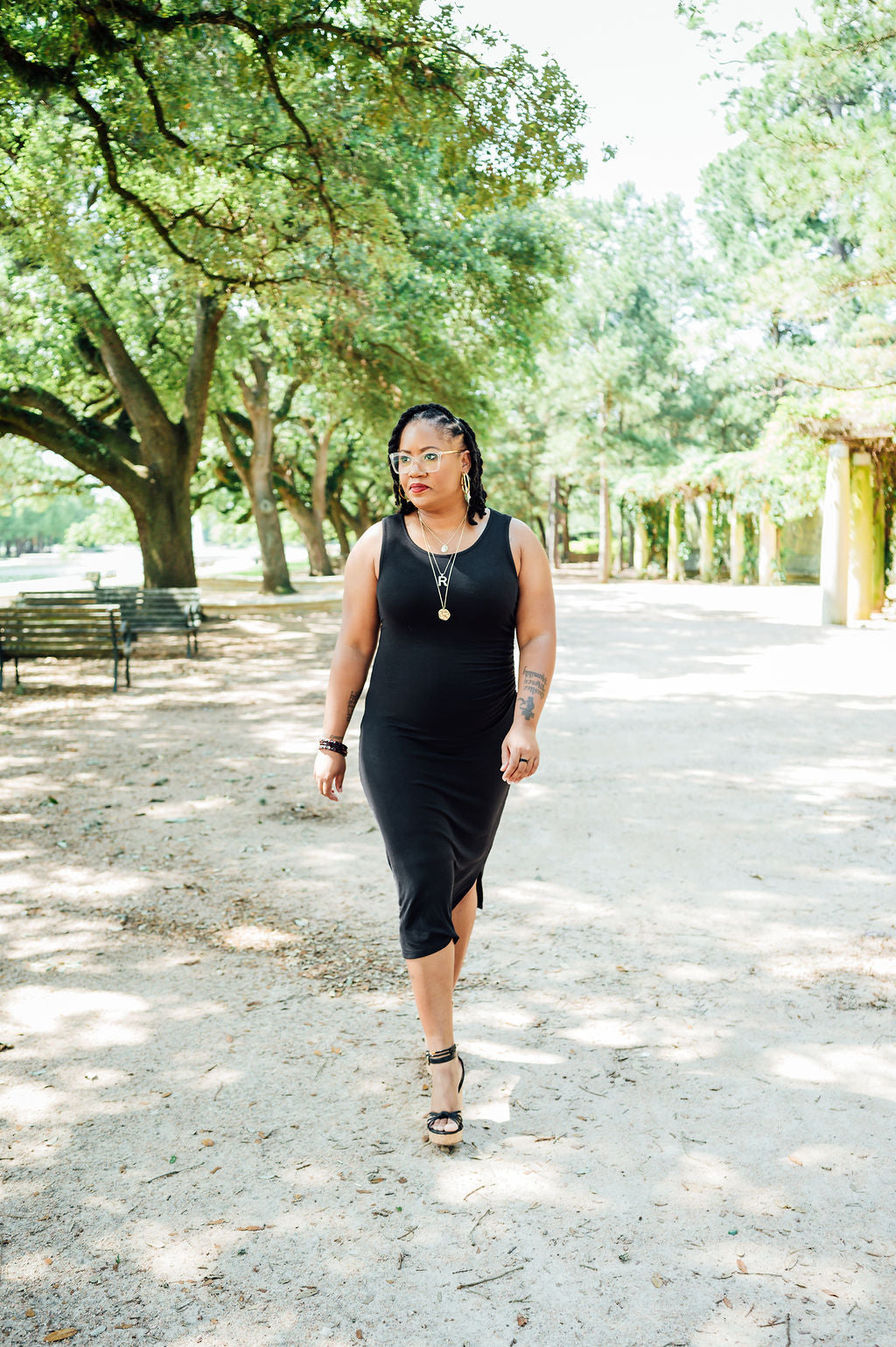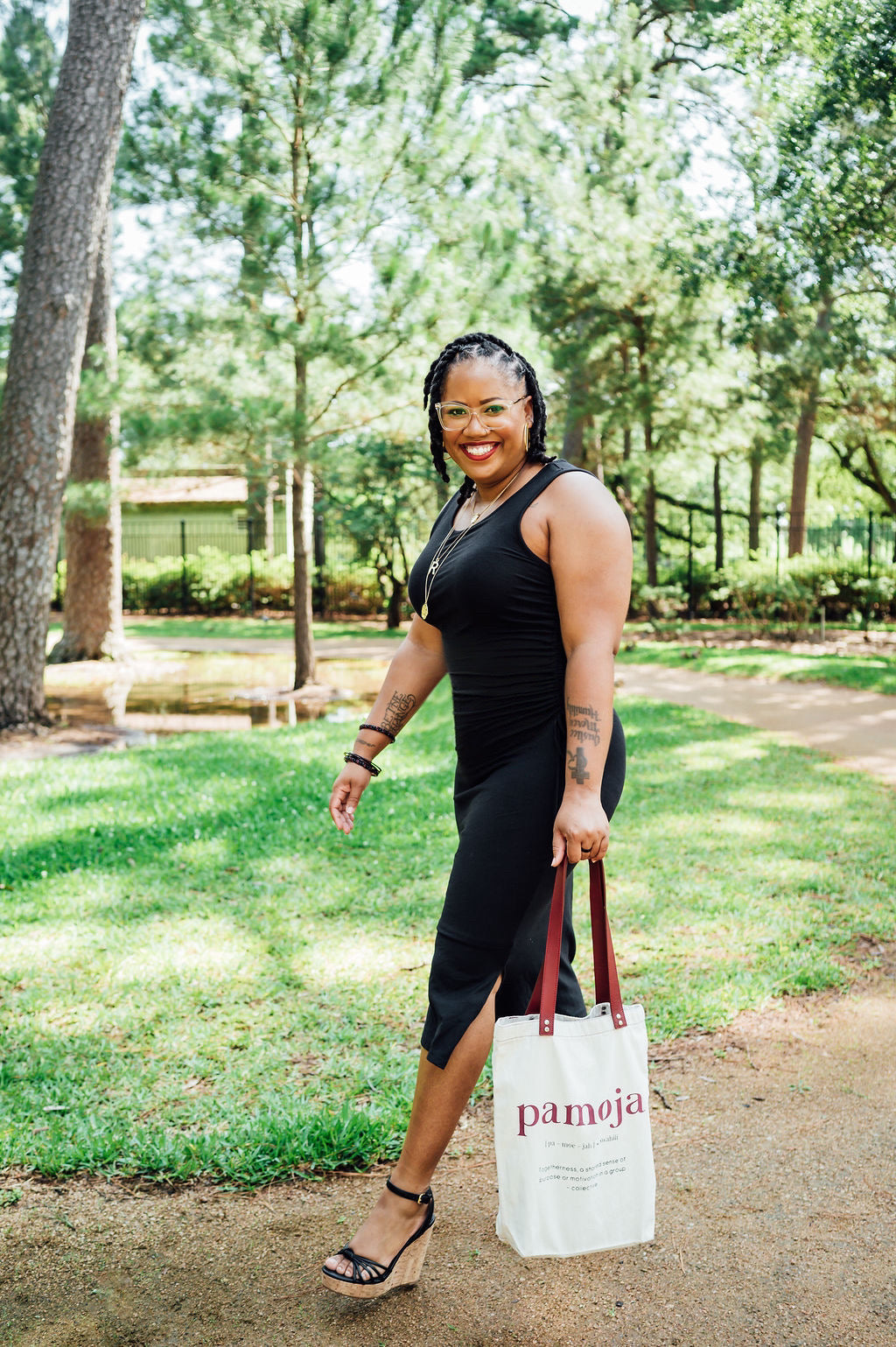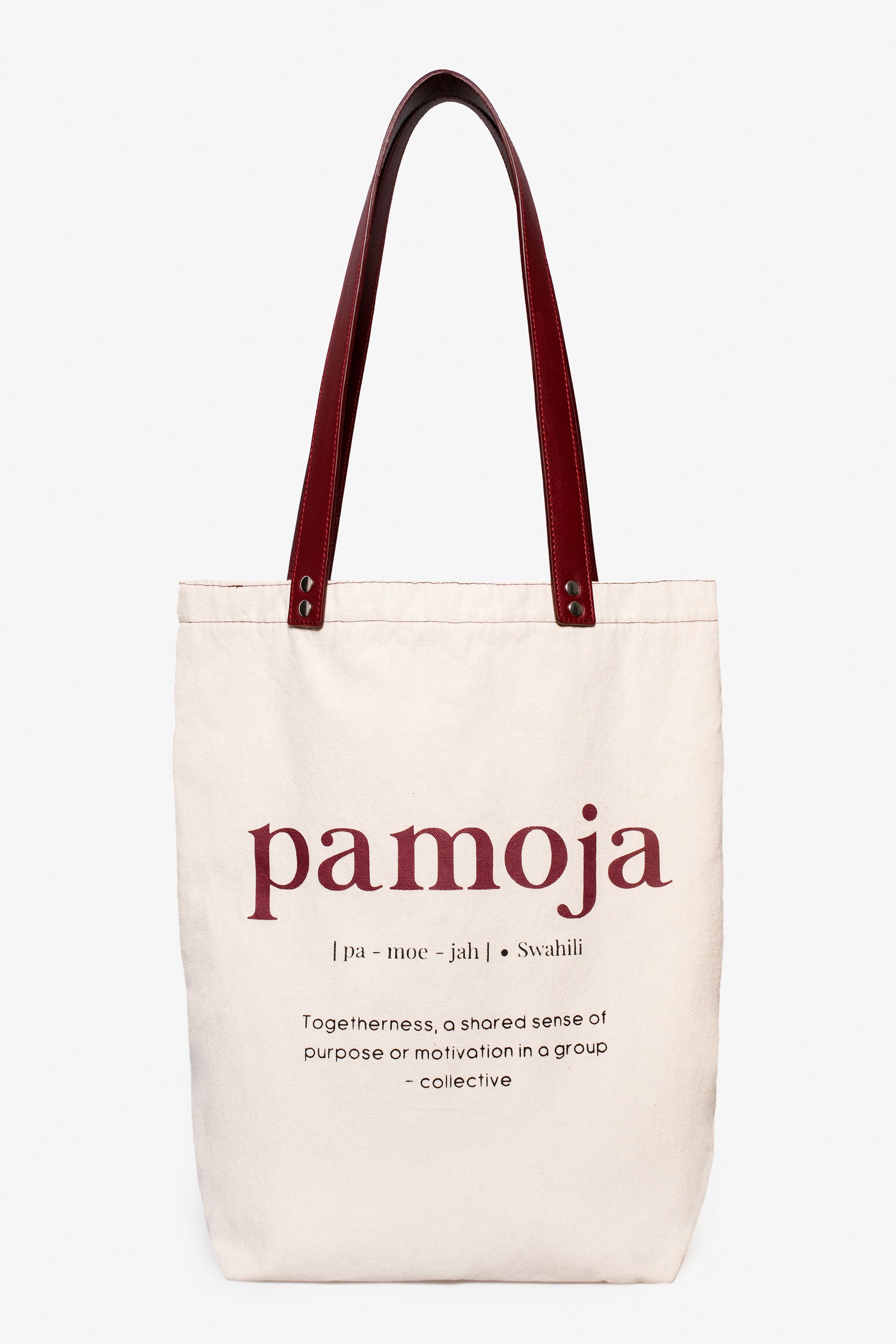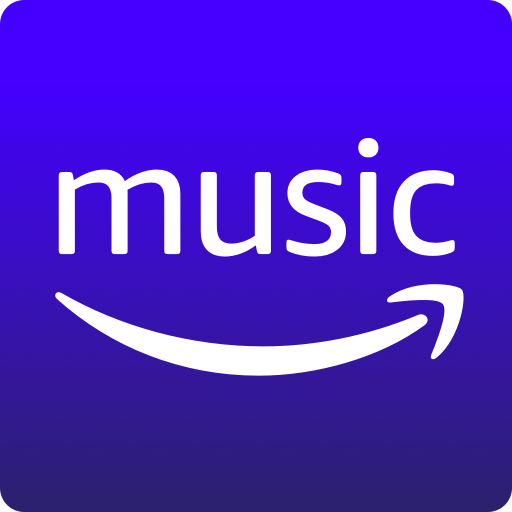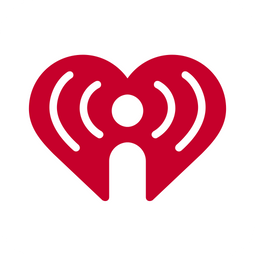07 | Rozella Haydée White: LOVE, The Simple Yet Transformative Ways to Improve Our Relationships
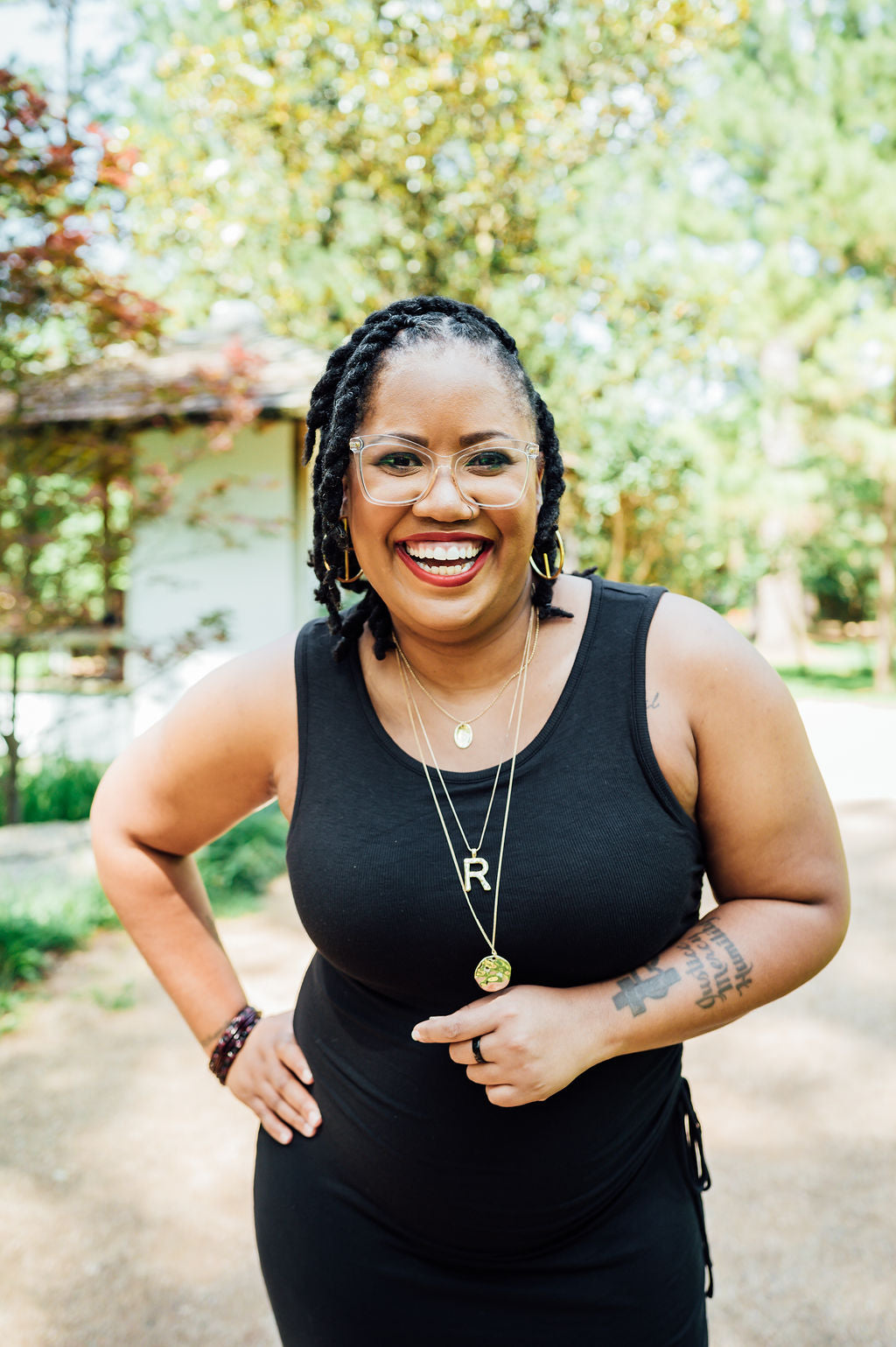
07 | Rozella Haydée White: LOVE, The Simple Yet Transformative Ways to Improve Our Relationships
Hailing from New York to Houston at a young age, Rozella Haydée White is the rose that grew from concrete. Rozella is none other than the Love Big Coach who focuses on nurturing and cultivating the transformative power of love, publishing her first solo book in 2019, “Love Big: The Power of Revolutionary Relationships to Heal the World.”
I’ve known Rozella for nearly a year and have learned so much from this phenomenal individual I would describe as an Optimist, Romantic, and Inspiration.
So what does it mean to “Love Big” you ask? Tune into our 7th episode to find out!
Topics Covered:
- The powerful lessons and growth from intergenerational living
- The origin of Love Big
- Living life in abundance
- The push to write the first solo book
- The correlation between loving others and loving self
- Elements of a successful relationship
- Free will is ultimately choice
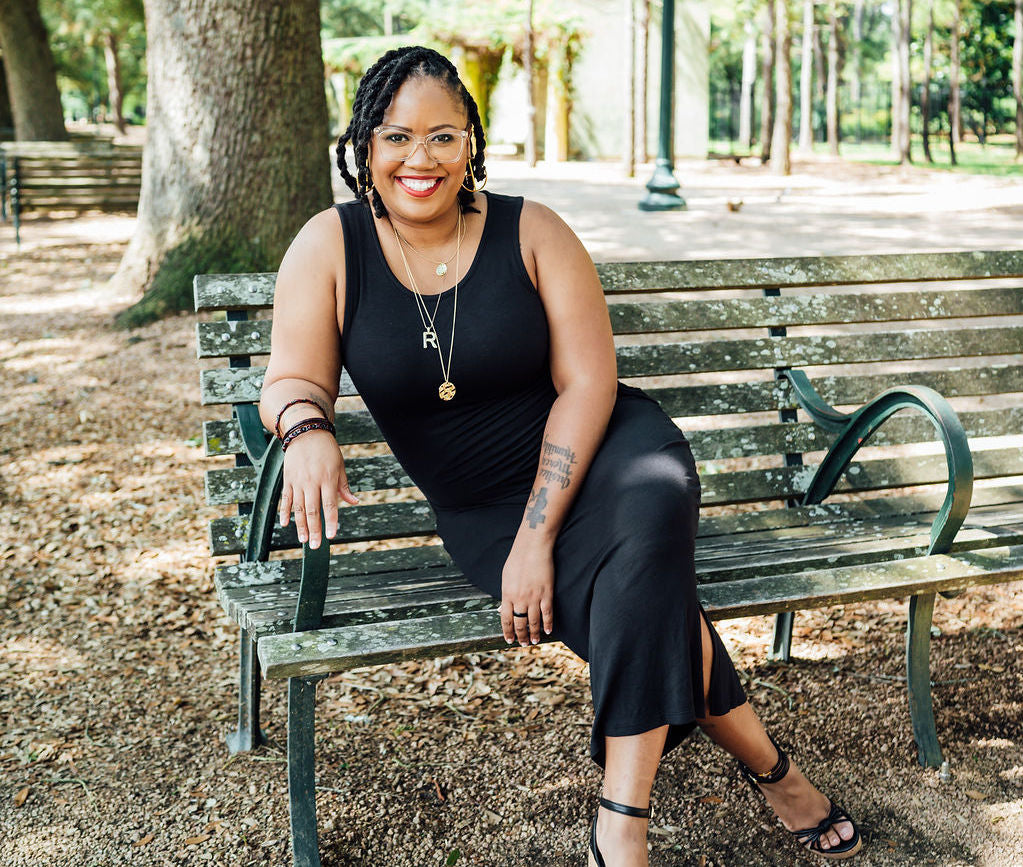
- The powerful lessons and growth from intergenerational living
- The origin of Love Big
- Living life in abundance
- The push to write the first solo book
- The correlation between loving others and loving self
- Elements of a successful relationship
- Free will is ultimately choice
Explore Our Podcast
Transcript
Rozella Haydée White: I think that I have just gotten to this place where I am clinging to the reality that I get to create and I get to choose. And those are two things that I feel like and I like, I call God dad or the divine, or source like implanted in us, is that we have the ability to be co-creators and we have free will. And free will is ultimately choice.
Stephanie: I am Stephanie Evans, and this is Diaries of a Modern Trailblazer. Take note of the journey and be inspired to forge your own amazing path.
I'm here with Rozella Haydée White. Thank you so much for joining me on the podcast today, and I just wanna kick it off with you just sharing a bit about who you are, your story, your backstory in genera
Rozella Haydée: Yeah. Well, I'm so excited to be with you today. We were just talking literally about my name.
So I always start just talking about who I am based on my name. So my name is Rozella Haydée, and I'm named for both of my grandmothers. So my father's mom was the granddaughter of sharecroppers from a small town called Capron in Virginia, which is about 45 minutes north of the North Carolina, Virginia border.
And she was Rose Ella, right? Very southern name, but she went up to New York when she was a child and then would spend every summer back on the farm. And she went on to get married and have her first kid at, I think 13, and went on to birth seven more children. And that side of me and my family is fun loving joy, all the things— sometimes to the point of no return.
And then my mom's mom, so my, on my mom's side, I'm Afro-Latina. So my mother, my maternal grandmother, her name was Haydée Gisela, and that side of my family was from Puerto Rico by way of St. Croix, Jamaica, Panama. And then they migrated from Puerto Rico to the US to the mainland in the '20s. And so my name is reflective of both of these women.
And on my mom's side, I got the love of learning, and probably a little bit of the bougieness and just love of travel and culture. And so that's who I am, right? I am Rozella Haydée. I am known as the Love Big Coach, and that is based on the title of my first solo book, which was Love Big, the Power of Revolutionary Relationships to Heal the World. And very simply, I say that I am someone who nurtures life giving and justice, seeking love in this world so that we all can thrive.
I'm a romantic by nature and not just like I just finished queen Charlotte, the Bridgeton story. Not just like romance novels and romance stories romantic, but I'm a romantic by how I view the world, right? That like love has the power to heal us all. That there is um, transformative power in love. That , connections across space and time and cultures are possible through love.
And so, so much of what I do, everything that I do, kind of departs from that understanding of the way that I define love as a force that nurtures, that creates, that liberates, that provides healing. And everything that I do flows from that to my businesses. The way that I engage relationships in terms of friendships and family my relationship with myself, my spirituality, all of it comes from that understanding of love.
And then lastly, I'd say that I'm a social impact entrepreneur. So I am a business owner and the businesses that I start are all service based. At least right now we're looking at getting into some tech stuff, which I'm excited about. But all of my businesses are addressing either a deep injustice or a problem that exists as it relates to how people relate to each other and to themselves.
And so that is who I am and a little bit about my work in the world and what drives me. Yeah. I'm just naive enough to believe that love can fix everything.
Stephanie: Yes. And thank you so much. Thank you for that amazing introduction, and as you said, you're the Love Big Coach and you just have this aura of love about you.
I'm just really grateful that I've met you. We met as I joined The Gathering Spot, which is a phenomenal social club. When I thought about bringing on a guest for this podcast, I thought instantly, it would be amazing to have Rozella be part of it, and I'm just really grateful for you giving the time to be here.
Rozella Haydée: Well, absolutely and thank you again for the invitation because I think that, I mean like recognizes like, so you as a creative, you as someone who has a business and a brand that's not just one thing that also is connected to your values and, and the, the change you wanna see in the world. Like, I feel like it's a perfect alignment, so,
Stephanie: Yeah absolutely. And so what's been on your mind lately that you wanna share with the audience?
Rozella Haydée: I feel like there's so much, there's always so much that's on my mind. So one of the things on my mind is that I am, I am a part of an intergenerational family and we call it the family compound. So it's a group of us in my family, so my parents, my brother and I, and my brother's family, his wife and their three kids.
We made the decision about three years ago now to do life together for a variety of reasons. And so one is that my parents were aging and our kind of family home, they were thinking about downsizing. You know, 2— my brother has three kids between the ages of seven and 17, and wanted an environment for them, kind of like the environment we were raised in, which was always intergenerational.
And then 3— just the season that I'm in, in my life as someone who is both single, but also a business owner who owns a couple of businesses, travels. It's like we know that life is just, it can be lonely and hard to do by yourself. So one of the things that I'm thinking a lot about is because I'm with it all the time, it's my family, and not just family in the broadest sense of the terms, but what does it mean to create community, to engage in practices of forgiveness?
To deepen in your communication and to really create a legacy. So I'm, I'm thinking a lot about legacies and both of my parents were diagnosed with cancer in 2021, and so the last two years has been just journeying with them with all that entails. So both being caregivers, but also still, you know, you live with your parents and your parents are, at least I'm blessed to have two parents that are incredible caregivers of me and of their family. So yeah, thinking a lot about intergenerational connections.
I'm also thinking a lot about, I think just the pervasive reality of loneliness. So as a coach, one of the communities I coach are women, generally women non-profit executive leaders ,faith leaders, because of my former life, I was a public theologian.
And there's so many folks that are just lonely. And are struggling with what does it look like to connect, especially post the pandemic. And because I think the pandemic revealed so much to all of us about ourselves, about our relationships, about the society we live in just noticing how people are trying to reemerge and the lives that they want to create in this season.
And then I'll say, the other thing I think about, because this is my other work too, is all things dealing with not just race, because the work that I do is in a category that we talk about is racial healing and wellness. But the way that racism, oppression, privilege, marginalization has impacted us. Holistically, mind, body, heart, and soul, and has really created disease within us. And so I'm, those are just some of the things I'm thinking about in this current season of my life. Yeah and just my own ongoing healing journey and healing work.
Stephanie: Definitely a lot of things to think about. And we were talking about this earlier, it's just like the intergenerational living situation, living compound that you have, which is not something that's common. Yeah. In today's society, at least here in the United States. Right. But maybe in other parts of the world. What's been your biggest learning and growth out of the past three years Yeah. That you've seen for yourself?
Rozella Haydée: Oh, that's an awesome question. I mean, on the one hand, this is all we knew because from the time I was born, I've always lived in a house with at least three generations. I mean, barring when I was married, but even then when I was married, my ex-husband is, was Gen X, I'm millennial, and then he had a son.
But in terms of my, you know, family of origin, we always had elders in the house. So I just always assumed that that would be true when we got older. I didn't know that it would happen the way that it's happened. But I think in terms of learning, you know, I've been on my own journey of mental health and addressing, you know, the stories that I've told myself of the past and, I've been working with a therapist for over a decade, and it's interesting because in this season I feel like all of that stuff that I learned or that I was practicing, I now get to practice in this space.
And hard isn't the right word, but it is complex when you essentially go back to the places and spaces that formed you and where some of the things that you've recognized are pain points or triggers like were formed. And so now being the adult that I am with the commitment to my own growth that I have, And being in a house with my mother and my father who are incredible. And right, also having maybe some unresolved childhood stuff or because I was gone for so long, never really had to think about it and now engaging it. It's been a powerful both invitation and an ongoing lesson around the power of healing, of growth, of rigorous honesty and also of boundaries because it only works for me if I am able to maintain a level of not just independence, but autonomy and freedom.
And if I am clear that I am still my priority. Because when I'm able to do that, then everything else flows. So, and it's just also interesting to see how our parents parent us, like in my forties, like, how are my parents parenting me now versus, you know, when the last time I lived there at 20 so some days it's hysterical. Some days it's hard. Most days it's somewhere in between.
Stephanie: Yeah. And then also just to that point, you know, it's like as we get older, And have our own life's experiences and see our parents. It sometimes feels like that role reverses a little bit, which is quite interesting for me. Yes, to see that happening.
Rozella Haydée: Well we joke all the time because I'm also the IT, the tech person in the house, Uhhuh, and so we have all of these, like whether it's TikTok videos or things that we share back and forth in the family chat about the things that my parents are figuring out with technology and the ways that we relate and yeah, all of that.
It's been, it's been a joy. Mm-hmm. It's been joy.
Stephanie: Yeah. I wanna circle back to Love Big Coach. Mm-hmm. And how that came about. Can you give us a little more insight into the origination behind that?
Rozella Haydée: Yeah. So it started, I mean, Love Big started with, for me my book, my first book. And it also flows from the parts of myself that for so long in my life, I was told were either too much or I'd have to change. So I was an in, I am, I'm gonna say was I am an incredibly sensitive person. And before Brene Brown, you know, made vulnerability cool, if you will, was very vulnerable, very empathetic and was teased a ton for it.
Like I've always been a romantic. I was reading historical romance books from the time I was probably 10 and had a massive collection by the time I graduated high school. So just love has always been a core value of mine and something that I longed for and I think it grew out of some trauma and some, you know, situations when I was younger.
So my parents and their relationship now were not always married and so they had me and then my mom and dad separated. They were no longer together. And then my mom met my stepfather when I was three. They married when I was six. We moved to Texas with my younger brother and my parents, my mom, my stepdad.
Then they divorced when I was 13 and my mom and my biological dad got back together. And then they got married when I was 14, and so, and that's who's a part of the compound now. And so there's always been this like great love story that's flown that, that's flowed through my family and through my parents.
And so I feel like I'm the embodiment of that. I often say I'm the rose that grew from concrete, quite literally as the daughter of Clarence and Diane, right. This man from Harlem and this woman from Queens and here I am and they've known each other since they were 19 and they'll be 67 and 68 this year.
So I just, I think being a lover is something that is just part and parcel to who I am. And then I think the other piece of it flows out of my initial career as a pastoral leader in public theologian. And I grew up in progressive Protestant, mainline Christianity, so very like open to women pastors and just more of a progressive way of reading and understanding scripture.
And I always had this Relationship with God as Lover. And in some respects it's provocative for people, but it's like, you know, the greatest love story ever told for me was not the, and I, because I was Christian, was not the death of Jesus and the person, you know God and the person of Jesus, but actually was the birth of God in human form.
So this notion that I believe that God wants nothing from us, but for us to experience life and life abundant and life in relationship with others, and that in becoming human, like that was the, the greatest act. That was the the most loving thing because it's like I want to be in relationship with my creation in a way that produces change and healing and deepens connections.
And so both my familial background and then also my faith background, I think helped to flesh out Love Big. And I don't even know, I'm trying to remember how the title came to me, cuz I always title my writings first before I start writing.
So I was thinking about the book and then I was like, Ooh, Love Big. And people always, you know, confuse it with Big Love. I'm like, no, that's a showtime series. You know about the polygamous family, and that's fine too. But because I think about love as something we do, then I, I use it as not just a descriptor, but like the type of love that I'm about is bold and intentional and generous.
So that's where the Big comes from. And then once I wrote the book, because when I initially started the book, I was coming out of my former career and was beginning my entrepreneurship journey I realized that so much of my orientation had been in the coaching kind of posture, and as I became a certified coach and really expanded my services to offer coaching both to individuals and organizations, I was like, oh, there's a whole methodology here. Mm-hmm. Around what love makes possible. And then building on the work of people like Bell Hooks and Howard Thurman and Cornell West, right. There's this inextricable link for me between Love and Justice. It's the actual active force for change and it begins with ourselves.
And so yeah, that's how Love Big came about and love Big Coach.
Stephanie: I love that. Oh, one of the things that you had mentioned was around faith and. Your relationship and view with God in terms of living life in abundance. Mm-hmm. How are you living life abundantly?
Rozella Haydée: Oh. I think for me in this season, living life abundantly has started with a mindset shift of a belief that there is enough. So much, especially in our culture of the United States, right, is wrapped up in scarcity and fear. And I was also part and parcel to that and I think at some point, especially when I stepped out on my own I recognize that fear and scarcity only, or those ways of thinking and being only breed more disconnection.
And abundance. If I believe that there is enough, enough time, enough resource, enough connection, enough opportunity, then the way that I treat myself and others is radically different. And so for me, living in abundance first begins with kind of my mindset and the belief that there is enough. I think there's also something to be said about being present in each moment.
You know, I'm a, I say recovering workaholic because it don't take much for me to kind of slip back down into that and not from, I just need to grind it out just because I can just be so focused on what I'm building that I miss the moment and the present moment. And I think back to your earlier question about this moment in living with an intergenerational family, it's teaching me also to be present, right?
So the seven year old needs help making a meal and I'm on school pick up duty. So that means that whoever picks up the kids does snack, right? Okay, well I need to create time for that. Or parents have doctor's appointments. Like every week there's multiple appointments. So, being present with that. Or the teenage niece sits down next to me on the couch and just starts talking. Well, I need to close my laptop because I don't know when that day's gonna come again, that she's gonna be sharing, or, you know, the teen nephew who is autistic and is just the light of our lives in so many ways, and he is in culinary school, like starts talking about what he made that day. I need to be listening.
So part of living in abundance is first the mindset part about belief that there is enough. And then for me it's the practicing presence. And then I think the other piece of it is, is just a practice of gratitude.
And it sounds so cliche, and I don't know about you, but gratitude practices have absolutely shifted my life. And it's not like I'm not talking about gratitude for material stuff. I'm talking about, I'm grateful that there's breath flowing through me today, or I'm grateful that my mom and I had a disagreement and we were able to come back and talk about it, or I'm grateful that you know, I'm able to provide space and experience as an opportunity for my nieces and nephew.
So yeah, the mindset, the practicing presence, the engaging practices of gratitude.
And then I got, so I got covid before the vaccine became accessible and I got really sick, like hospitalized, moved into cardiac care unit. My heart went into AFib. Like it was all of this stuff, and I'm relatively healthy, have never had issues. And the medical staff was com like complex. That are confounded the whole time of like what is going on? Like there is nothing that would be in your chart that would suggest that you would get this sick. And I was in the hospital for about a week and then after that was recovering for about three months and was on heart meds for another for six months after I got out.
And I think that experience, Also taught me a lot about like this present moment and to stop putting stuff off, you know? So I had been wanting to do a program called Remote Year prior to that, and I'd just been putting it off. So I was like, Nope. When the doctors cleared me, I did a month in Mexico City.
Or, you know, there are people that I've been wanting to see or spend time with, I'm going to reach out, I'm going to do it, or you know, I'm not gonna, I'm just not gonna wait. Anymore for things. So that's what living in abundance for me has looked like in practice.
Stephanie: That's beautiful. I'm definitely taking note of a few things.
One of the things that I have started to do recently is practicing gratitude in, it really is life changing and just to wake up. And say that I'm blessed and today is going to be a great day. Mm-hmm. It does become a great day. Mm-hmm. You know, like you can really manifest that type of stuff just in terms of practicing gratitude in your daily lives.
Rozella Haydée: And I always say that like, you know, there's always conversations around manifestation and. Especially in the worlds that I've come from, you know, that are faith or spiritual spaces, even though I've, my spirituality is very broad and wide because of my background. You know, and I say that essentially manifestation is the belief that something is possible, and then the courage to act on, right, what you hope, which again, when we think about belief and courage and faith and hope, those are all sometimes.
You know, nebulous things. But for me, spending time in those spaces and really reflecting on and working on my mindset, and I say this as someone who lives with depression, right? So it's not like I'm not someone who's like, oh, just think your way out of it. No, I don't believe that. And yeah, with my medication, with my lifestyle changes, with my support and therapeutic support.
And then also with, you know, this commitment to practices that ground and guide me. It really has made a difference in my life. So...
Stephanie: Let's talk about courage. So what gave you the courage to write your first book?
Rozella Haydée: Oh, Well, my entire life I've, I've been a writer, so I have notebooks from when I was a kid of stories, like short stories or poems or things like that. And then I was told in my first job that I was verbose and I needed to like cut back on the words that I used. So I think over the last 20 years, there's just been a lot of attention paid to how I communicate with words in the written form, and I've always been a, a reader.
So I, I love books. I love the written word and I love how good writing regardless of genre can invite you to consider a new possibility, to confront things about yourself that maybe you haven't, and to see yourself right in another story, in another's experience.
So I think when I, you know, I knew I was gonna write a book. I never knew what it would be or how it would come to pass. And I was approached by a denominational publishing house to think about, you know, this book. And I didn't know, you know, I was like, well, what was I gonna talk about? Like, there's so many things and so, started thinking about this thing of love, started thinking about theology and faith, and started thinking about, at least from, you know, the Christian tradition, how we talk about the greatest commandment.
You know, the first, the greatest commandment Jesus says is to love the Lord your God with your entire being. And then he says, the second is like it to love your neighbor as yourself. And that statement always intrigued me because we never would talk about the what does it mean to love another as you love yourself, and also the correlation between loving others and loving self.
So that kind of led me on that journey of exploring this. And you know, to the question of courage, I don't know that I had courage. I just did it and it was hard. And I mean, my first solo publishing experience was a bit traumatic. Just because of a few factors, but one being that a dear friend of mine who had helped me think about this and endorsed it, died right before the book came out.
And we're like the same age. And you know, it was just so, like the whole process was bittersweet of this person who had been a part of the journey at the beginning who was not there at the end. And then I was supposed to celebrate it and, That was wonky and then covid hit, right? So it was just this, this really weird space to be in.
So I don't know that I had courage as much as I had some external like invitations to engage my craft. And once I started it, I was like, well, I have to finish it. And there are times that I lament that it's not the book that I wanted it to be or, you know, things didn't go as planned, but in retrospect, it's like, okay, there was so much that I learned from it. It helped me actually lay the framework for how I think about not only what Love Big is, but how I incorporate that into my work and into my businesses. And so I just, I did it afraid.
Stephanie: Yeah, I did. It's part of your journey. Yeah. And then I also want to just note that you're continuing on with your writing. And you were a contributor to the New York Times bestseller and International Bestseller, A Rhythm of Prayer, a Collection of Meditations for Renewal. And we were just talking about how you're working on another (Yeah) project right now. So, bravo to you for continuing on with it.
Rozella Haydée: Thank you. Thank you.
Stephanie: I do wanna read one of the things that stood out to me in your book and just kind of let you continue upon it. So this one is, what is it? It's in Restore Your Soul. Mm-hmm.
Restoring my soul is probably the hardest work I've ever done. Because it requires me to be excruciatingly honest with myself and to listen deeply and well. Stripping away the shoulds of your life and listening to the voice within that reveals who you are, what you value, what brings you joy, and how you are called to bring that joy to life is hard. Letting go of others' expectations of you and deciding to live for yourself and your God is not easy, but that's the invitation. That's the work that's needed to be done in order to experience restoration.
Rozella Haydée: So sometimes I hear stuff that I wrote and I'm like, I wrote that.
Stephanie: Yeah, you, I. It's not like you're gonna remember verbatim exactly what you wrote, but there were a couple of gems in there. And I like when I read that, I was like, I gotta circle that.
Rozella Haydée: Yeah, yeah. And that whole notion, I mean, that connects, it's so funny too, how there is these through lines in so much of my work that I'm starting to see.
So in this season, I've been engaging. One of the books I read recently was Dr. Thema Bryant's book, Homecoming. And she basically talks about healing as the work of coming home to self. And I mean, that's a newer book, but I think about that like in conjunction with what you just shared or read of, of this stripping away.
And really getting to know the self. Before all of the other people experiences world told you who you were, (right) or who you were supposed to be. And when I think about, we talk about doing the work, for me, that's the work. Like who am I really? And not only who am I, but especially in this stage of my life, who do I want to be?
Because if I'm, if I believe in abundance, as we talked about earlier, right? Like that there is enough. And that possibility of bounds that I could really be whoever it is I want. And for me, that being has to be in alignment with what I value, what my beliefs are. And I don't mean beliefs from a religious standpoint.
I mean beliefs in terms of what I hold dear as it relates to how the world works and how people are treated. And. What it means to be you know, a a positive force in people's lives. But it begins with really stripping away and doing that excavation of like, okay, what's here? Because I, this goes back to my belief.
I believe that there is inherent goodness in all of us that there are gifts and unique offerings that have been implanted in us all. (Absolutely) And so our work is about coming home to find that. Yeah.
Stephanie: It really is about relationship with self to your point. And there's always opportunity for growth.
Rozella Haydée: Always.
Stephanie: And I'm just like, what do I wanna be, what do I wanna do when I grow up? Mm-hmm. I'm still growing. Mm-hmm. You know, even though I'm in my mid thirties, like I still feel like there's so much opportunity for growth.
Rozella Haydée: I would say as long as we're living and there's breath flowing through our lungs, there's still more loving and learning to do.
Right. And that's kind of something I, I hold true and I learn something new every day.
Stephanie: Another question for you. In your view, what makes a relationship successful?
Rozella Haydée: So what makes for a successful relationship? Well, I feel like the first thing is I'm always gonna ask like, what do we mean by success? Yes. So for me, when I think about what a successful relationship is, I would say that it's healthy. And, you know, I'll talk more about that, that it's reciprocal that there is mutuality.
And accountability, right? So I think that those things happen within the context of what a successful relationship is. And then I think the elements of it, it are, I mean, I know everyone says this, but communication, like communication and not just, talking at each other, cause that isn't communication. To communicate is to exchange ideas. To get feedback, to gain clarity and understanding.
So the person who is in my life, in an intimate way, we are committed to having conversations like when things happen. And it may not be in that exact moment, but it doesn't go more than like a day or two.
Before we come back and like, talk about it, right? Once you're out of the heated moment or out of the, the feelings have been hurt. And I think about this even with my parents. Like, again, in every relationship I'm in, this is something that I'm practicing of. What does it mean for me to reflect on what happened?
What was said, what that brought up in me, because more often than not, we're reacting, we're not responding in our relationships and in our conversations. And then Yeah.
Stephanie: And it becomes like a survival mode Yes. Type of situation.
Rozella Haydée: Yeah. And I, I got tired of reacting. So successful relationship is one where there's communication that flows from response and we're responsive to each other.
I think there is something to be said about being observant, right? Of the people that you're in a relationship with. Like whether it's knowing their love languages or just being like learning who they are and how they process information and the best ways to relate to them. I think it's incumbent upon me as a person in relationship with someone else to know those things about them, and I would hope vice versa.
Because then we are both getting what we need by way of like people showing up for each other in ways that are, that speak to that person's way of being. So there's a lot with communication.
I think boundaries are really big. And I say this as someone who is also a recovering co-dependent growing up as the daughter of an addict and just all the other stuff of my childhood, codependency was inevitable. And then you add on the fact that especially women in our culture and all these other things, I think that codependency is, is we're bred into that. And I think what that means is that also our boundaries are fully permeable and we become enmeshed with other people.
And I think now in this season of my life, healthy relationships, again, regardless of friends, family, romantic partners, looks like having a clear sense of self and honoring the others' sense of self. And not becoming, I'm using my hands, but like becoming enmeshed to the point of I don't know where you end and where you begin or where I start.
And you like, That has not been healthy for me in the past. And so to really be able to stand fully in my personhood and honor the personhood of another and be in relationship with someone who honors that in me has been such a gift. And I think a example of what for me, makes a successful and healthy relationship.
And I think the other thing for me is, is I couldn't, I can't talk about healthy relationships or successful relationships without joy. Like Joy is a non-negotiable in my life. Like I'm going to laugh. I'm going to do things that are entertaining simply because I believe joy is my birthright. Especially, especially for black women you know, I think about whether it's Tricia Hersey who does the Nap Ministry, or Sonya Renee Taylor, who's the author of The Body Is Not An Apology or Adrienne Maree Brown, Emergent Strategy like these are women that I read and look up to and that remind me that living in this present moment, and embracing what is, honors the ancestors, honors the lineage, honors the sacrifice.
And so yeah, joy, like
Stephanie: Period.
Rozella Haydée: Yeah. Period. You know, and I think there, you know, there are nuances for different types of relationships. Like where does passion fall in or where does yeah, intimacy and again, intimacy large, like. I'm intimate with my friends, I'm intimate with my family. Like being able to be fully who you are without feeling like you have to, to dull the edges even as you're a work in progress or you're, you know, noticing things about yourself that you are seeking to.
Get into more alignment. But you don't have to be anybody but who you are. Like that to me is a mark of a, a successful relationship.
Stephanie: So revolutionary relationships, you speak about that in your book. I would love for you to share what that means.
Rozella Haydée: Yeah. So it grew out of this understanding of the difference between a covenant and a commitment. And again, I always put the disclaimer on this is only like when I talk about relationships, I'm talking about relationships where people are not experiencing harm, where people are not in crises, and when people are not living in trauma. Like if those are true about the relationships you're in, then what I'm about to say, like, this is not for that, right? The number one thing is your survival, your health, your being able to, to heal. And those situations are absolutely not okay. And when I think about revolutionary relationships from a place of, of wellness and wholeness, it begins with this recognition that I am in relationship with someone.
And it's a covenant, so it doesn't necessarily matter what you do, it's about what I have committed or covenanted to be in relationship to you. Right? So what does that look like?
You know, we'll use my mother. It doesn't matter what my mom says or does, that's my mom, and that's who I am in relationship with.
And again, we're not talking about relationships that have elements of abuse, like that's not that, because it could easily get to, well, I'm committed or I'm covenanting to this person. And I'm like, well, this person is not honoring your personhood. So the covenant is null and void, right? But in the context of people that honor you, see you, it's really about the person or each person in the relationship continuing to show up regardless of what the other person does, which for me flows from again, my faith, like when I think about a God that showed up in human form and continue to be present for people. That we're not, that we're just amiss, right?
Like it flows from that. I think it's also about, when I think about revolutionary relationships, there are relationships that change us where transformation and possibility are part of them. And they're not necessarily always lifelong. And that's something I've learned in the last five years. I mean, there's some relationships and friendships that I've had that have ended or maybe are on pause for this season, and I grieve that because they were relationships that I thought that would be until the end of time.
Stephanie: Yeah.
Rozella Haydée: But even with them ending, there was so many gifts and graces. And there was a mirror right to, to show me more about myself. That's actually helped me be a better person in relationships moving forward. So it's both that, what does it mean to engage in a covenantal connection and also what does it mean to be open to transformation and change in the context of a relationship.
Another thing I talk about marks of revolutionary relationships, being accountable, justice seeking, reciprocal, mutual, all of that. But I think at the highest level, it's about the covenanting and the being open to being changed by it. And that means that instead of always being like, well, this is just how I am.
I don't know how many times I've heard that in relationships, well, this is just how I am.
Stephanie: Oh, yeah.
Rozella Haydée: You know, I'm not necessarily in relationships with people that say that anymore. Like, and not to say again that you can't be who you are, but I tend to be in relationships with people that recognize who they are is always changing.
So that this is who I am is like, oh, okay, well then you can be who you are and I am gonna continue to evolve and unfold into who I'm becoming. (Right.) Because I don't think that we're ever done becoming, unless we choose to be.
Stephanie: That ties back to what we were talking about. Mm-hmm. It's just mm-hmm. Continuation of growth and the evolution. And so what motto do you live by?
Rozella Haydée: So one of them is turn your judgment into curiosity For sure. Like that's always in the back of my mind. (I like that) on my laptop. It's on a post-it on my desk. That is definitely something that flows through me. I think.
I mean just the definition of love, right? Love is that which creates and liberates and brings about healing. Like that's something that's always flowing from me that I'm always. Going back to.
And then I would just say Love Big. Right? That's, that's my motto. Absolutely. Love boldly, intentionally and generously. Yeah. And then the four agreements.
I always go back to the four agreements of being impeccable with your word, of not taking things personally. I'm trying to remember all of 'em. They're on my Yep. Don't make assumptions and always. Do your best. Yeah, those are the things that I try to, I try to live by.
Stephanie: I'm gonna have to write some of those down. Keep that in mind for sure. Because I mean like you're one of the most optimistic, positive outlook people that I know. And so like how do you develop your calm in the midst of all the chaos that life brings day in and day out?
Rozella Haydée: Man, it's become a non-negotiable, especially after I got sick because one of the things that came up for me when I got sick was, oh, I realized that this was not just a, a physical malady, if you will. There was some emotional and energetic stuff happening. And one of those things was that I was not prioritizing my wellness.
Right? Not like the activities around healing, but like prioritizing, like what does it mean for me to nurture an environment or have practices and habits that really center and ground me. And there, I mean, there's seasons, right? It's not like I do it well all the time, whatever quote on quote well, is.
But I think on the one hand, it's taking the long view. So recognizing that this moment in time is a moment in time, right. The, the arc of human history mm-hmm. Is so long and not to diminish. Right. What we going, like I just said, like I had both parents diagnosed with cancer. We had 10 people died during Covid, like one after another.
An aunt and uncle were in a car, a motorcycle accident. My aunt was killed like, and this was like the favorite aunt. So it's not that there isn't shit, right? It's not that there isn't struggle and pain. I think that I have just gotten to this place where I am clinging to the reality that I get to create and I get to choose. And those are two things that I feel like and I like, I call God dad or the divine, or source like implanted in us, is that we have the ability to be co-creators and we have free will. And free will is ultimately choice. And so, you know, after years of just struggle and strife and I mean, divorce and depression, like all the things. Right. I've gotten to the place of like, I get to choose how I respond, how I show up, and that generally means I get, I have to slow down. I don't get to do as much stuff as I used to do, you know? Cause I'm just, I'm, I'm moving at a different pace. And I'm, I'm constantly on the lookout again, going back to gratitude practices, but also like, yeah, there, there is so much beauty in this world.
Or like, we spent the morning at a park and I'm just like, damn, I haven't been outside. Like I used to be outside regularly, even if it's like swinging in my hammock or being by water. And it's like the beauty is everywhere, it's just a matter of, of being on the lookout for it. And if are, am I gonna choose to do that or am I gonna choose another way?
And then when I don't make the choice, Like, then it's an invitation to get curious as to, to what's keeping me in whatever cycle or whatever mindset or whatever you know, belief system that feels oppressive and it's not liberative. Because that's ultimately what I'm about is like liberation. Yeah.
Stephanie: And so I like to wrap up the podcast with a moment of reflection. And just in hindsight, what do you wish the younger version of yourself knew?
Rozella Haydée: Hmm. That I was enough and that, you know, if I'm, if, if living in the abundant mindset today means believing that there's enough, I don't know that I ever believed that I was enough. And so that led to all manner of things. Mm-hmm. Right. At various stages in life.
And that, that I am loved beyond comprehension because I think the story that I told myself for so long was that whether it was the various arrangements of my parents or romantic relationships or personal situations, that there was something deficient in me that led to the end of and just choosing to, to change that narrative.
So yeah, those are the two things that I am enough and that yeah, I'm not only worthy of love, but there's nothing that I can do to separate me from love. Yeah.
Stephanie: And I know you will continue to Love Big. And so what's next on the horizon for Rozella?
Rozella Haydée: Oh, I mean, right now I'm in the season. I'm working on my next solo book which will be about family and culture and specifically what families like mine, which are not odd outside of the United States, but in this, you know, in our context maybe is not that normal or normalized, but what we, what lessons we have to offer others. So that's a book project.
I'm also starting to outline my, my next little memoir around grief.
And then just really engaging in this entrepreneurial journey, right? I'm, I'm doing some brand shifts in 2024, so really focusing on my organizational coaching work. Getting back to, I used to lead trips called Taker Travel Journeys, and so inviting people to places (Yeah, I wanna do that.) and spaces.
Yeah. We're so excited cuz , we would lead trips to the Middle East, to the Holy Land, but basically any place that has a history of conflict and that has people living into possibility on the ground, like we want to connect. And then connecting people, like connecting creatives, connecting organizers, connecting business and tech folks, but really doing it in a container that helps us really be immersed in another's context and learn from what their, not just the struggles have been, but where the triumphs have also been.
Because again, I believe that relationships change the world and part of (Absolutely) this is to get people in relationship with each other. So yeah, that's what's next. That's what we're working on. And I'll be launching a podcast this year, so that's, yeah, that's a work in progress as well.
Stephanie: Amazing. Amazing. Thank you so much, Rozella for being on this podcast and really just sharing your amazing story that is going to continue on and really excited to see more from you.
Yeah. Well, thank you and thank you for inviting us into this journey and, and recognizing what trailblazing looks like and, and what it means to, to be authentic in who you are.
And that's a wrap. So own it and make moves one day. I wanna share your journey on this podcast.




